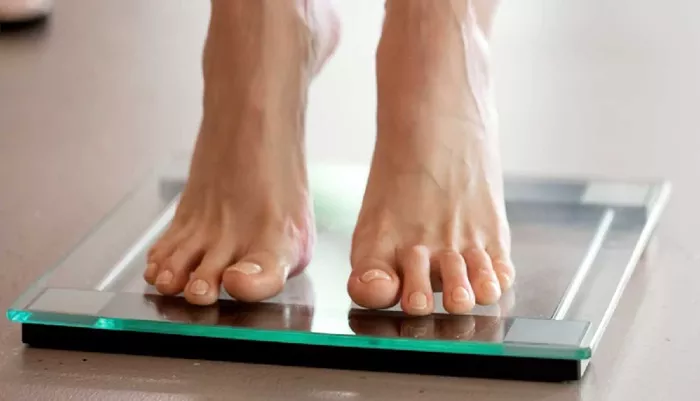When people see the number on the scales drop during the first days of a new diet, it can feel like progress. But according to one weight loss expert, that initial drop often doesn’t mean true fat loss.
Professor Franklin Joseph of Dr Frank’s Weight Loss Clinic says it’s common for people to lose a few kilograms early on, but much of that is likely water, not fat.
“Rapid weight loss in the first week or two is often just water,” Professor Joseph explained. “It can feel motivating, but it’s important to understand what’s really happening in your body—otherwise you may feel confused or disappointed later.”
He shared five common signs that suggest early weight loss is mostly water and not fat.
1. Quick Weight Drop
Losing 2–3 kilograms in just a few days is usually a sign of water loss, not fat, according to Professor Joseph.
“Real fat loss happens slowly—usually around 0.5 to 1 kilogram per week, depending on body size,” he said.
A sudden drop often comes after cutting carbs or calories, which causes the body to release glycogen. Glycogen is stored with water, so its loss leads to a noticeable drop on the scale.
2. No Change in Body Shape
If your weight drops but your clothes still fit the same, it’s likely water weight.
“You might still be squeezing into the same jeans,” he said. “That’s a sign you haven’t lost fat yet.”
Fat loss, by contrast, usually results in visible changes around the waist, hips, and face.
3. Frequent Urination
Another sign of water loss is a sudden increase in bathroom visits.
“If you’ve gone from using the toilet a few times a day to going every hour, your body is probably shedding excess fluid,” Professor Joseph said.
4. Feeling “Deflated,” Not Leaner
Water loss can also leave you feeling softer or more empty, he explained.
“A lot of people say they feel deflated, not leaner. That soft, empty feeling is water leaving the tissues—not fat being burned,” he said.
True fat loss usually comes with improved muscle tone and increased energy.
5. Weight Rebound After One Meal
Gaining a kilogram overnight after eating a high-carb or salty meal is another sign of water weight fluctuation.
“Fat doesn’t return that fast—but water does,” Professor Joseph noted.
Focus on Long-Term Signs
He said the real indicators of fat loss are more gradual: clothes start to fit better, energy levels rise, and weight loss on the scale becomes slow and steady.
“Don’t be discouraged by slow progress—it’s a good thing,” he said. “Fat loss is meant to be steady. Water weight comes and goes, but lasting fat loss is worth the wait.”
Related Topics:
What Diets Only Contain Fish & Chicken? Detailed Instructions


